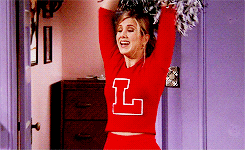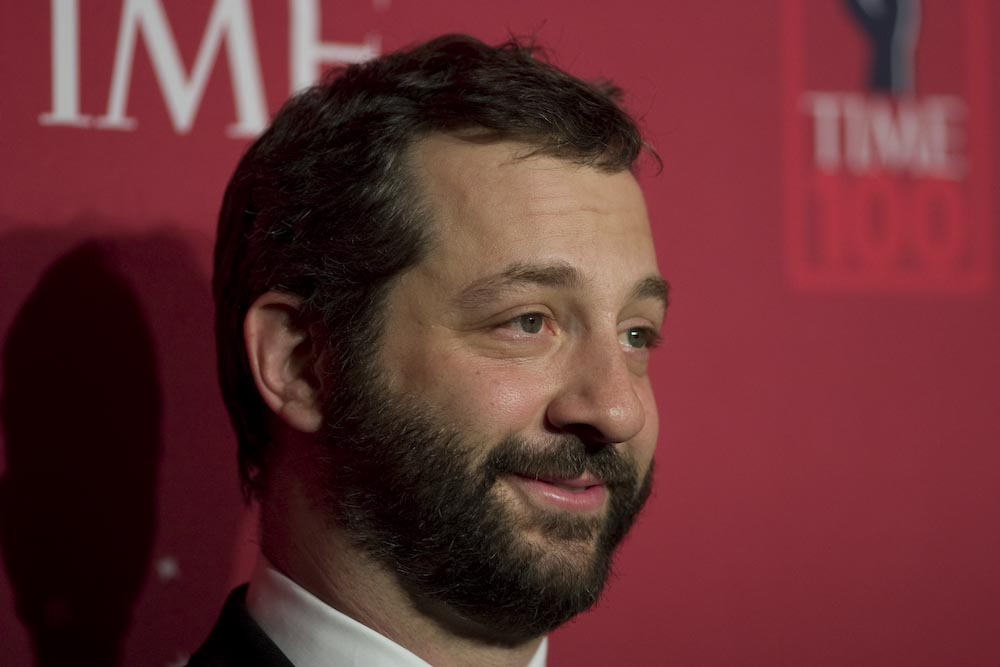2017 was not the year for the straight, white man (finally). We “learned” that many powerful, privileged men were actually devious predators (“learned” is in quotes because “open secret” was one of the most operative terms here), and many of us lost the little faith we had left in the male public figures we may have previously revered. I certainly came to believe that all powerful men left a slime trail of abuse and intimidation wherever they walked.
But then, I watched Judd Apatow’s stand-up special on Netflix. And that cloud of distrust and all-encompassing condemnation for the straight, white showbiz man dissipated, if only for a moment.
Seriously, as more and more famous men turn out to be pigs, and many straight, white men fail to grasp today’s social issues, Apatow’s stand-up proves sweetly inoffensive and aware. It might even make you laugh.
Granted, the man has an advantage when it comes to the world of women. Though his comedy special covered topics ranging from his parents’ divorce to Rachel’s nipples on Friends, Apatow always seemed to come back to his daughters and his wife, Leslie Mann, whom he mentioned by name more than once. He was clearly thrilled with and proud of all three of the important women in his immediate family, and that reverence — never patronizing, simply genuine — showed through the rest of his comedy.
But let’s go back to Jennifer Aniston’s nipples. Coming from most male comedians, such a topic would get ugly quickly. There would be some kind of gross innuendo that would make men in the audience snicker and women involuntarily recoil. You’d exit that “comedic” moment feeling like you needed to take a shower, or at least not watch Friends anymore (not a problem for me, because I don’t particularly enjoy the show, but still not a nice thing to inflict on your innocent audience of possible Friends fans).

With Apatow, Aniston’s nipples became a family bonding moment. He only mentioned them because he was talking about how his daughter opted to binge-watch the series, so they watched many episodes together as a family and discovered that Rachel’s nipples made noticeable appearances in every single one. This prompted them to ask, again as a family, if this was a “thing” in the ‘90s. They investigated and found many a Friends nipple montage set to music, which they watched as if it were the “Yule log” at Christmastime.
Is this objectification? Sure — it’s turning someone else’s body into a vehicle of your own entertainment. But is it exceptionally innocent? I would argue yes. Did it make me uncomfortable as a woman with nipples? No, but typing the word “nipples” over and over again is kind of making me uncomfortable now. Moving on.
Stand-up hasn’t been Apatow’s medium for a while. Instead, he’s been busy making movies and TV shows. I first got acquainted with Apatow via Freaks and Geeks, what I still consider to be the best and most honest show about high school ever made. Apatow produced the series and also wrote and directed some episodes in the late ‘90s/early 2000s. The show focuses on an honors student, played by Linda Cardellini, who just wants to hang out with the cool, pot-smoking kids (aka James Franco), and her younger brother, a genuine geek who loves Dungeons and Dragons and his two equally nerdy friends.
The social awkwardness, weird breakups, and personal growing up journeys they endure in the series smacked of my own. As I got older, I was able to follow the Freaks and Geeks cast through Apatow’s other productions, like Knocked Up and The 40 Year-Old Virgin. He eventually shifted to more female-centric works, like Bridesmaids (one of my favorite movies of all time, starring Kristen Wiig and Melissa McCarthy) and Girls, which again meshed with my personal timeline (I was in my early 20s at the same time as the central characters).
One of Apatow’s main criticisms is that his works feature awkward, unattractive men ending up with beautiful, cool women (think Netflix series Love). The comedian does not fail to address this in his Netflix special. He instead points to his own relationship with Mann and calls himself an “ugly troll” living among three gorgeous women.
At one point, he singles out several men in the audience, noting that they’re all less attractive than the women with whom they’re watching his show. He points out how they all just kind of look like him — a hairy, aging Jewish man with a paunch — only one is him “if he worked out,” another with brown skin is a “more ethnic version” of him, and another is him if he were bald. In doing this, Apatow manages to compliment women in the audience without objectifying them, instead focusing on the dumpy men they’re with. It’s all in good fun — the men are smiling. They know how good they have it.
Underlying Apatow’s stand-up special is a narrative about family. Partway in, he reads a poem he wrote as a young man about his parents’ “vicious divorce.” In what he deems a “Dr. Suess” style rhyming pattern, he calls himself “one funny Jew” and hopes that this dark time will provide fuel for his comedy going forward and his eventual success. We know there’s a happy ending. His family today, as far as he frames it, is pretty great. Yes, he and his wife fight every day, but it’s regularly about how poorly they both slept (as someone who has trouble sleeping, this bit was especially charming).
Meanwhile on YouTube, where the trailer for Apatow’s special appeared in November, commenters deride his so-called “virtue” and family values. “It won’t be long before this virtue signally creep is called out for sexual harassment,” one commenter wrote. “I don’t know why but I think this it’s [sic] a sexual harasser,” typed another.
While we can’t necessarily rule this out without knowing for sure, I’d like to believe in Apatow’s goodness. “Just because he’s old and white doesn’t mean he rapes people,” wrote one YouTube user. After watching Apatow’s stand-up special, I really hope they’re right.
Image via Flickr/Rubenstein



